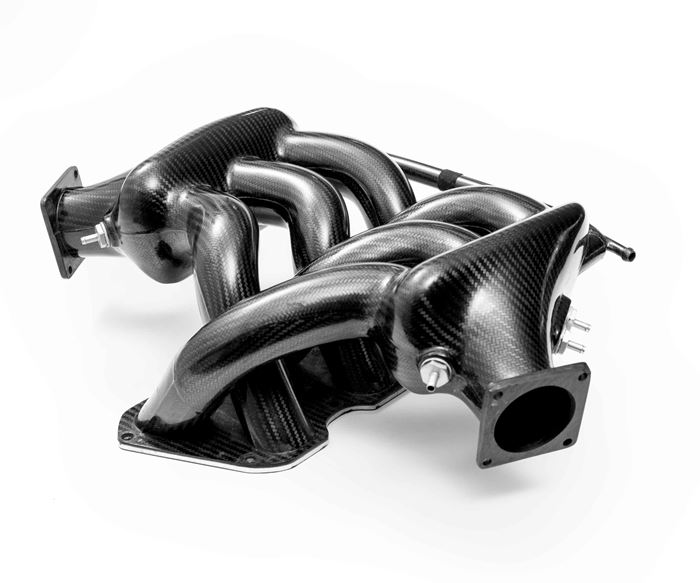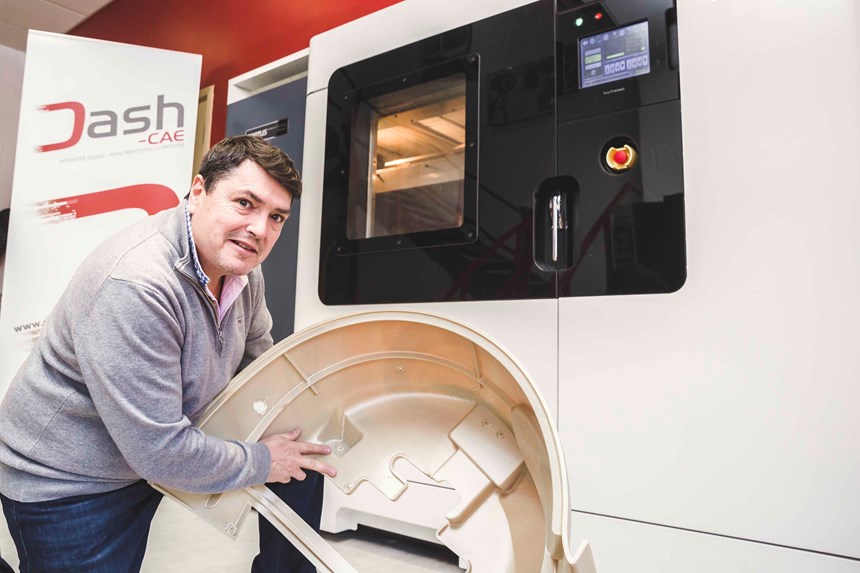Oxford-based engineering company adds one of the largest 3D printers in the U.K.
Dash-CAE has invested in one of the largest 3D printers in the U.K. to help accelerate manufacturing in composites.
Dash-CAE (Oxford, U.K.) has invested in one of the largest 3D printers in the U.K. to help accelerate manufacturing in composites. Anticipating demand from the automotive and aerospace markets, Dash-CAE’s lean approach combined with its Stratasys F900 is said to help reduce production time by up to 85%, design time by 90% and all at a fraction of the cost.
“Our 3D printers are helping us slash development times and costs, while building fully functional parts and production tools,” explains Tim Robathan, managing director of Dash-CAE. “Other large printers such as ours may be based at customer sites for internal use only, yet ours is open to all.”
Dash-CAE has been a partner to the transportation industry since 2006, providing a lean pit-stop like approach to design and engineering. “Our primary interest was to develop easier processes for molding carbon fiber parts,” says Robathan. “As a result, we pioneered tooling for composite parts — both for direct and lost tooling.”
Dash-CAE’s 3D print division is now creating rapid tooling, jigs, fixtures and production applications. It has three Stratasys Fused Deposition Modelling (FDM) printers covering build sizes from 0.305m3 to 1m3. FDM Technology works with production-grade thermoplastics to build strong, durable and dimensionally stable parts with high accuracy and repeatability.
“With 3D printing, we can quickly run through multiple complex iterations and save a lot of time,” says Robathan. “Carbon fiber is very cost effective but tooling costs can be prohibitive. Our tooling is the alternative, and can be used in autoclaves and out-of-autoclave processes.”
Related Content
-
Sulapac introduces Sulapac Flow 1.7 to replace PLA, ABS and PP in FDM, FGF
Available as filament and granules for extrusion, new wood composite matches properties yet is compostable, eliminates microplastics and reduces carbon footprint.
-
3D-printed CFRP tools for serial production of composite landing flaps
GKN Aerospace Munich and CEAD develop printed tooling with short and continuous fiber that reduces cost and increases sustainability for composites production.
-
Plant tour: Spirit AeroSystems, Belfast, Northern Ireland, U.K.
Purpose-built facility employs resin transfer infusion (RTI) and assembly technology to manufacture today’s composite A220 wings, and prepares for future new programs and production ramp-ups.

















